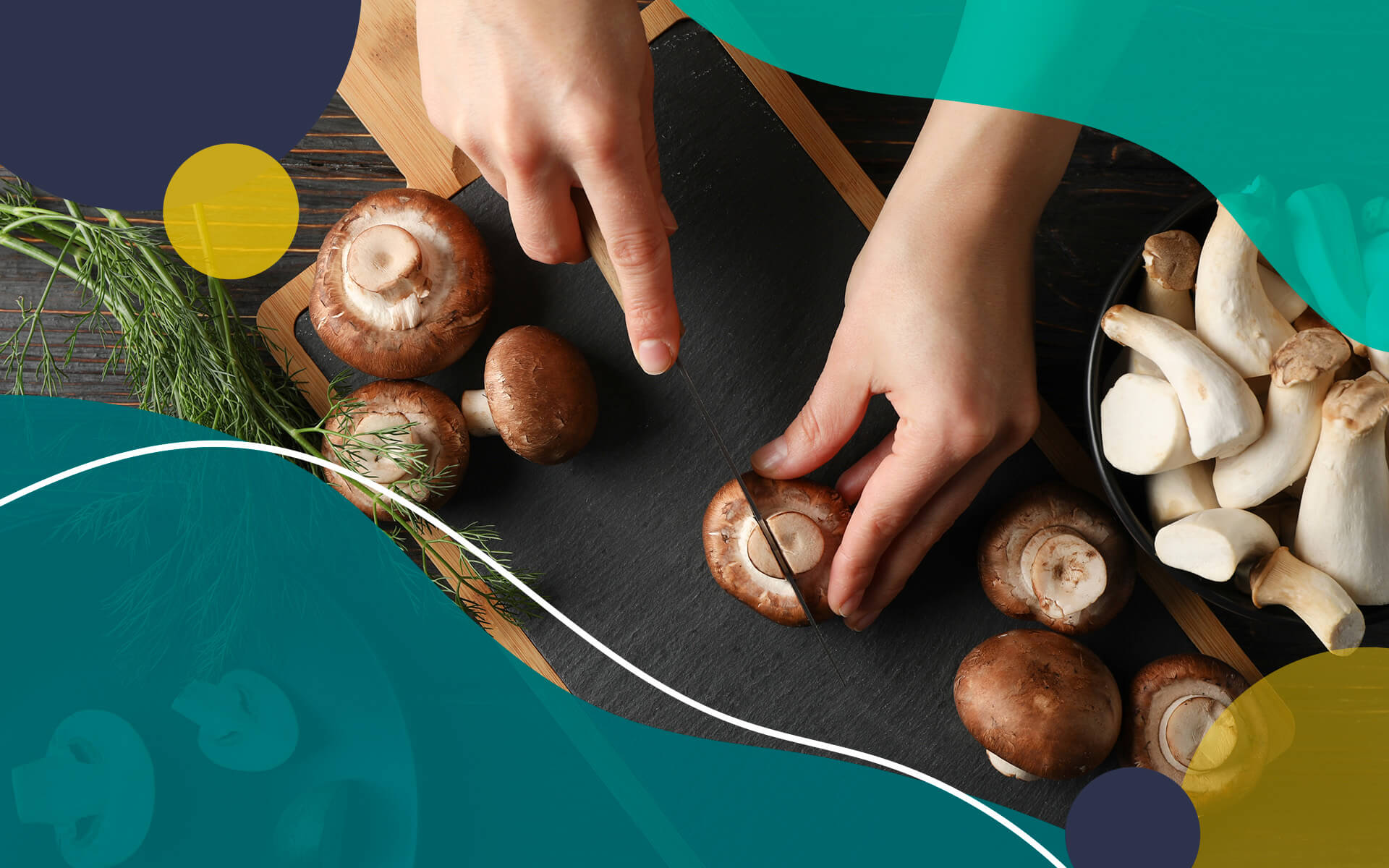
Body + Mind is reader-supported. We may earn an affiliate commission when you buy through some of the links on our site.
You can cream them in a soup or sauté them to accompany a steak. Mushrooms are versatile fungi, and many varieties taste phenomenal. Did you know that portabella could also benefit your health?
Mushrooms are marvelous for more than their ability to go from French to Cantonese with aplomb. Some varieties can help you control chronic diseases and pain. What are the health benefits of mushrooms? Read on to discover these magical fungi.
You’ve probably heard of antioxidants, but what do they do? These substances prevent cellular damage caused by free radicals, which are molecules lacking an electron. When they seek a new mate, they wreak havoc in your body and result in cellular death.
A deficiency of selenium can throw off your thyroid function. This organ contains the highest concentration of the mineral in your body, and when it malfunctions, you can find your energy lagging. You might also pile on the extra pounds, and consuming more mushrooms might mitigate this effect.
If you follow a vegetarian or vegan lifestyle, you know that you need to get adequate protein intake. Mushrooms offer one avenue for getting enough of this macronutrient. A cup of portabella mushrooms contains 8% of your recommended daily allowance, plus they make an ideal substitute for a burger when doing your summer grilling. Shiitake and white button mushrooms are likewise protein powerhouses.
Your body can manufacture vitamin D from the sun. However, many Americans still have a deficiency in the nutrient because they don’t spend enough time outdoors. When they do, they tend to slather themselves with sunscreen. That leaves your diet for getting enough of this necessary nutrient, and mushrooms offer one way to do so. Plus, you won’t harm any animals, making these tiny fungi a cruelty-free option for getting the sunshine vitamin.
Beta-glucan is a dietary fiber that may have significant heart-health benefits. It comes in both soluble and insoluble forms and interacts with lipids and biliary salts in your colon to impact your immune system. This fiber reduces levels of non-high-density lipoprotein cholesterol, which can clog your arteries.
Mushrooms also have potassium in droves. This mineral has a long-standing reputation for improving cardiovascular health because it mitigates the effect of sodium. Many Americans overeat salt in their diet, which can cause high blood pressure. Adding more mushrooms to your diet can help decrease the strain on your veins.
Copper is a vital trace mineral, and without it, you run an increased risk of several diseases. However, doctors do not recommend correcting deficiencies with supplementation because too much can lead to a dangerous imbalance. Most nutritionists consider it safe to get your intake through food, and adding mushrooms to your dinner plate can help you do so.
If you have a baby on board, you know that you have to increase your folic acid intake to help them develop. Mushrooms are an excellent plant-based source of this nutrient. The shiitake variety has the most, with nearly half of your daily needs. If you want to protect your developing infant, sauté a side of goodness with your meals.
Mushrooms might help you stave off migraines. They are high in riboflavin, a nutrient associated with decreases in attacks and severity. A recent study showed a reduction in migraine frequency among those who took 400 milligrams of riboflavin daily for one month. Supplementation works best when paired with magnesium, a mineral that mushrooms also contain.
The antioxidants ergothioneine and glutathione could potentially help your cells resist the impact of oxidative stress. When free radicals invade skin cells, it leads to death, resulting in a dry, wrinkly and ashy appearance. Mushrooms contain both substances, making a side of sauteed goodness a potent tool against the aging process.
You can reap a host of health benefits by adding mushrooms to your next meal. Hit your farmers market today to pick up a pint of these miraculous healing foods.
Your email address will only be used to send you our newsletter, and at any time you may unsubscribe. For more information, see our Privacy Policy.